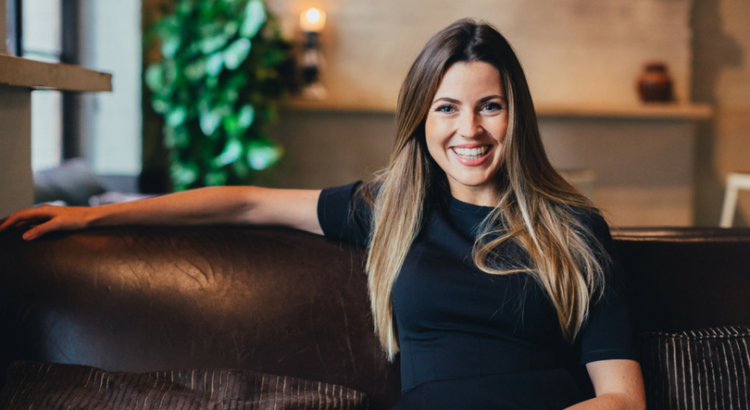Bridget Loudon is an entrepreneur turned management consultant turned entrepreneur, again. In 2013, she co-founded Expert360, a platform that allows companies to find and engage top vetted consulting talent for project work. Expert360 has more than fifteen-thousand high-quality consultants, has raised more than $18 million in venture funding and is poised to expand internationally. Expert360 came 4th in the Techboard Ranking for July. MitchelLake’s Robin Block sat down with Bridget to understand the roots of Expert360 and provide insight into how online marketplaces are set to change the world of consulting.
Bridget is speaking at B2BRocks Sydney on 28 September 2017. Read more about or book tickets to B2BRocks. Techboard has partnered with B2BRocks and will be bringing you more interviews with some of the great presenters who will be presenting at the Conference. Sign up to make sure you don’t miss out on some more great interviews.
Bridget: “If you have a good product and people have good experiences, they will come back. First and foremost, we have focused on having an excellent, unrivalled experience. If you look at our company overall, the majority of our sales and growth have come from referrals. I take that as a reflection that we are doing something right.”
Robin: What is the story behind the origins of Expert360?
Bridget: I was working for a top consulting firm consulting into large companies. I could see that companies were desperate to find systematic ways to bring in talent on an ad-hoc basis — freelancers or small groups of people that were not necessarily a full firm. All they had was word-of-mouth and networks. On the flip side, I could see that increasingly people would often leave large consulting firms to work for themselves, or start a small firm. However, they often struggled to be found at exactly the right place and the right times.
I had seen technology transform other industries where there was a mismatch in supply and demand. At that moment, I knew that we could apply technology to solve this market failure.
The consultancy industry is highly fragmented — $4 billion of the $6 billion management industry is freelancers and boutiques. We are working to make sure that these people can be found when and where their skillsets are needed. Our vision, however, is that we will be used by all players in the market, not just the small ones. We connect people who have professional services to those that need their help. The pain is particularly relevant to freelancers — but, that is a challenge in firms both big and small.
There is an already existing need in the market for this platform, and that need is only growing. Millennials are increasingly working for themselves, engaging in project based work and expect online networking resources. LinkedIn came in and promised a new world of work. LinkedIn has succeeded in building a universal CV, however it has morphed into more of a media offering (like many other social networks) for everyone who is not a recruiter, for whom it works spectacularly. It also works for sales people but it does not work if you’re buying or selling your services/time. The new generation of buyers and suppliers want a more efficient, streamlined and online way to build a reputation and network. There is no doubt in my mind that this is the way the world of work will work.
Robin: Diversity is a big point of interest at the moment, how much has being a woman impacted your role as a high-growth start-up founder — what do you think of start-up culture?
Bridget: To be honest, it wasn’t something I ever thought about until other people started putting that label on me. My co-founder, Emily Yue, is also a woman — so it’s certainly a point of interest. I think what is important, whether you are a male or female, is to know yourself — play to your strengths and fill gaps around your weaknesses. Our leadership team is 70% women and we are 50-50 across the board. I think that has happened naturally. Strong, ambitious and high-performing women have been attracted to Expert360 because having women role models is a powerful force of attraction.
There is empirically backed data regarding ‘ingroup preferences’ — people wanting to work with others like themselves — that includes gender. The industry was already male dominated, so you can’t hold that against anyone in particular. That is not to say, however, that I have not experienced my fair share of misogyny. I was once told by an investor that I should IPO the company immediately because the heartache of building a company wasn’t worth it compared to the number of Louis Vuitton and Chanel shoes I could buy.
To be honest, I think the best thing I can do for women in the technology industry is build a billion-dollar company. If I want to look at myself as a political figure, my role is to create a success story. When I get there, I can look back and reflect on that journey. If I took all of the speaking gigs I get offered — and I think this applies to a lot of female founders in the tech-industry — I would never get any work done. In the early days of the company, I was out and about more often than I am now. To be honest, I don’t like the media, or promotion. I don’t use Twitter and I think there is a bit of an echo-chamber within the start-up ecosystem. It can become consuming if you get too involved. I think the real source of success is getting that balance right. I do speaking events, and engage with the media when I think it is important for the company. At the current stage, the focus is putting our heads down and building a great product, building our team and creating good customer experiences. We have built awareness about the brand, now we have to continue to deliver around those expectations and that hype.
Robin: Has your role changed as the business has grown?
Bridget: I think that everyone’s role in the start-up/tech-industry shifts every 6 months, sometimes every 3 months. It means being prepared and adaptive — it’s challenging. There is a Sergey Brin quote — “if you aren’t breaking things, you aren’t moving fast enough.” I think it’s something you just have to get used to. However, you do need to check yourself every now and then — take stock and ask yourself if you are okay. Change and ambiguity should be expected in the start-up world. I live for it, but those aren’t natural human states. I think people want stability, certainty, continuity — those are natural and comfortable.
In 2015, we were just starting to get a project worth on average $40K posted every day, and then made it to ten-thousand consultants on the platform — those were both big milestones in the earlier days
Do you think about your leadership style?
Bridget: I frequently reflect on my impact on others and the kind of leader that I am and want to be. I think the big thing I have learned since starting the company is that I need to trust myself. There are a number of instances in my past where I wish I could go back and just say — trust yourself, trust your instincts. I think that is an important lesson for anyone starting a business, maybe women in particular.
What challenges do you face moving forward and what excites you about the future of the company?
Bridget: Business growth means personnel growth, and that can be difficult. Some of that is difficulty onboarding, etc. and retaining a customer focused company culture centred around fun, ambition, passion and being considerate as we grow in size. But, there is real difficulty in sourcing strong talent from a small pool. For example, we are currently looking to hire some data analyst and data literacy in Australia is less progressed than in other countries.
We get stories from people who say ‘we changed their life.’ That they had been doing top tier consulting work for ten years, have a Harvard MBA, have three kids and did not have the confidence to go back into a full-time job. Our platform enabled them to get back into the workforce and deliver excellent work in more flexible situations. Those are the personal stories that really resonate with me. When I realised we were making a living for countless people — that was a huge milestone in the business. Expanding these opportunities and creating global networks that revolutionise the world of professional consulting — that is what really excites me about the future of Expert360 and the platform we are creating.
Visit Expert360’s Techboard Profile

Robin Block is Head of Engagement at the MitchelLake Group in Sydney. Robin explores the human stories behind digital transformation and how they are changing the future of business.



